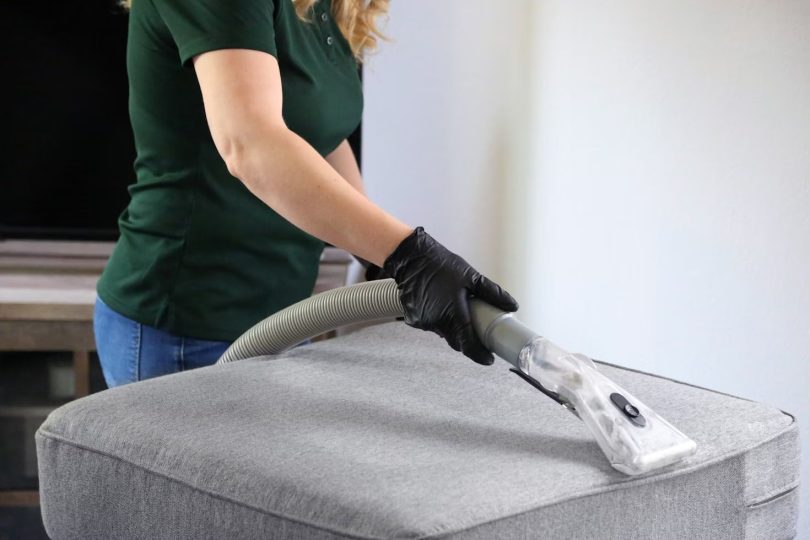Advertisements
Cleaner jobs in Canada are essential and in high demand across different sectors like hospitality, healthcare, and residential services. However, this guide is for you if you’re considering this career.
Advertisements
In this guide, you’ll learn:
- How you can get visa sponsorship for cleaners’ Jobs In Canada
- Qualifications, and skills
- Where you can find cleaner job opportunities that offer visa support In Canada
And a lot more.
READ ALSO: CANADA MARRIAGE VISA
How Can You Obtain Visa Sponsorship For Cleaner Jobs In Canada?
Here’s a guide to help you secure a cleaner job with visa support in Canada.
Step 1: Find A Job Offering Visa Sponsorship
The first step is looking for cleaning jobs that offer visa sponsorship. Start your search on websites like Indeed, Workopolis, or LinkedIn.
Use “cleaner jobs with visa sponsorship” to find relevant listings. Many Canadian employers are open to hiring foreign workers, so apply to as many positions as possible.
Step 2: Prepare Your Application
Once you’ve found a job that interests you, prepare your application. Your resume should clearly show your cleaning experience and skills.
Additionally, write a cover letter that explains why you’re the perfect fit for the role and how you can contribute to the company. Make sure to adjust both your resume and cover letter to each job you apply for to stand out from other applicants.
READ ALSO: HIGH PAYING JOBS IN CANADA
Step 3: Obtain A Sponsorship Letter
If you make a good impression during the interview, the employer may offer you a sponsorship letter. This letter is a key document in the visa process as it shows that the employer is willing to support your application.
The sponsorship letter should include your job title, salary, and the length of your employment. Make sure you double-check that all the details are correct.
Step 4: Submit Your Visa Application
With your sponsorship letter in hand, you’re ready to apply for your visa. Visit the government of Canada’s immigration website, where you’ll find instructions on how to apply.
You’ll need to fill out several forms and may be required to pay a fee. Ensure that all your documents are accurate and complete to avoid delays in processing your visa.
What Qualifications And Skills Do You Need To Work As A Cleaner In Canada?
To work as a cleaner in Canada, you don’t need formal educational qualifications, but certain skills and certifications can boost your chances of landing a job.
If you’re considering a career in cleaning, here’s what you should know about the qualifications and skills needed. While there are no strict educational requirements to become a cleaner, having a high school diploma or an equivalent is often a plus.
It shows employers that you have basic literacy and numeracy skills, which are useful for reading instructions, understanding safety procedures, and handling cleaning products.
Also, certifications aren’t always mandatory, but having some under your belt can set you apart from other applicants.
For example, a Housekeeping Room Attendant Certification can demonstrate that you take the job seriously and are committed to professionalism.
Additionally, any training in health and safety practices is valuable, particularly if you’re working in places like hospitals or schools where cleanliness is essential.
Key Skills
- Attention to Detail
- Time Management
- Physical Stamina
- Communication Skills
- Adaptability
More so, cleaning jobs usually involve physical work, such as lifting heavy items, moving furniture, or using equipment like vacuum cleaners and mops. You need to be in good physical shape to handle these tasks efficiently.
READ ALSO: Barber Jobs in Canada with Visa Sponsorship
Where Can You Find Free Visa Cleaner Job Listings in Canada?
Here are resources that can help you discover cleaner job opportunities that offer visa support In Canada:
Job Boards
1. Indeed:
As one of the largest job boards in Canada, Indeed is a great place to start. You can search for “cleaner jobs with visa sponsorship” and find a variety of cleaning positions. The platform also allows you to filter your search by location and job type.
2. Workopolis:
Another excellent platform, Workopolis, features many cleaning jobs across the country. By specifically searching for jobs that offer visa sponsorship, you can narrow down your options and find a position that fits your situation.
3. Monster:
Monster offers many cleaning job listings, many of which provide visa sponsorship. The site also includes useful resources like resume tips and interview advice.
4. SimplyHired:
SimplyHired aggregates job postings from multiple sources. You can search for “visa sponsorship” and “cleaner jobs” together to quickly find relevant positions. This broadens your options, as it pulls jobs from different websites and employers.
READ ALSO: Teaching Jobs in Canada for Foreigners with Visa Sponsorship
Company Websites
Some companies are known for hiring cleaners and offering visa sponsorship directly. Checking their career pages regularly can help you stay updated on new job postings. Here are some of them you can check out:
1. Marriott Hotels:
Marriott is known for hiring international staff, and they frequently have openings for cleaning positions. Their career page is a good resource for finding job listings that may include visa sponsorship.
2. Hilton Hotels:
Another big hotel chain, Hilton, also hires cleaners and could provide visa support for qualified candidates. Their website is a good place to check for opportunities. Many local cleaning companies across Canada hire foreign workers.
Just by visiting their websites or reaching out to them directly, you may find current job openings and opportunities for visa sponsorship.
Networking Opportunities
Building connections within the industry can be a great way to find job opportunities that aren’t always advertised online.
Attend local job fairs or community events in Canada. These gatherings give you the chance to meet potential employers face-to-face, which could lead to job offers or insider information on available positions.
Joining professional cleaning groups or associations can also open doors to more job opportunities. Many members share job leads and can offer advice on securing employment with visa sponsorship.
READ ALSO: How to Apply for Permanent Residence in Canada
Social Media Groups
Don’t underestimate the power of social media when it comes to job hunting. Many people have found jobs by joining the right groups or following specific companies.
There are Facebook groups dedicated to job seekers in Canada, especially those focused on cleaning jobs. These groups share job postings, visa sponsorship tips, and personal experiences, which can help guide your job search.
Also, on LinkedIn, you can follow companies that are known for hiring cleaners, engage with their posts, and network with professionals in the industry. You may find job openings this way or connect with someone who can help you land a position.






